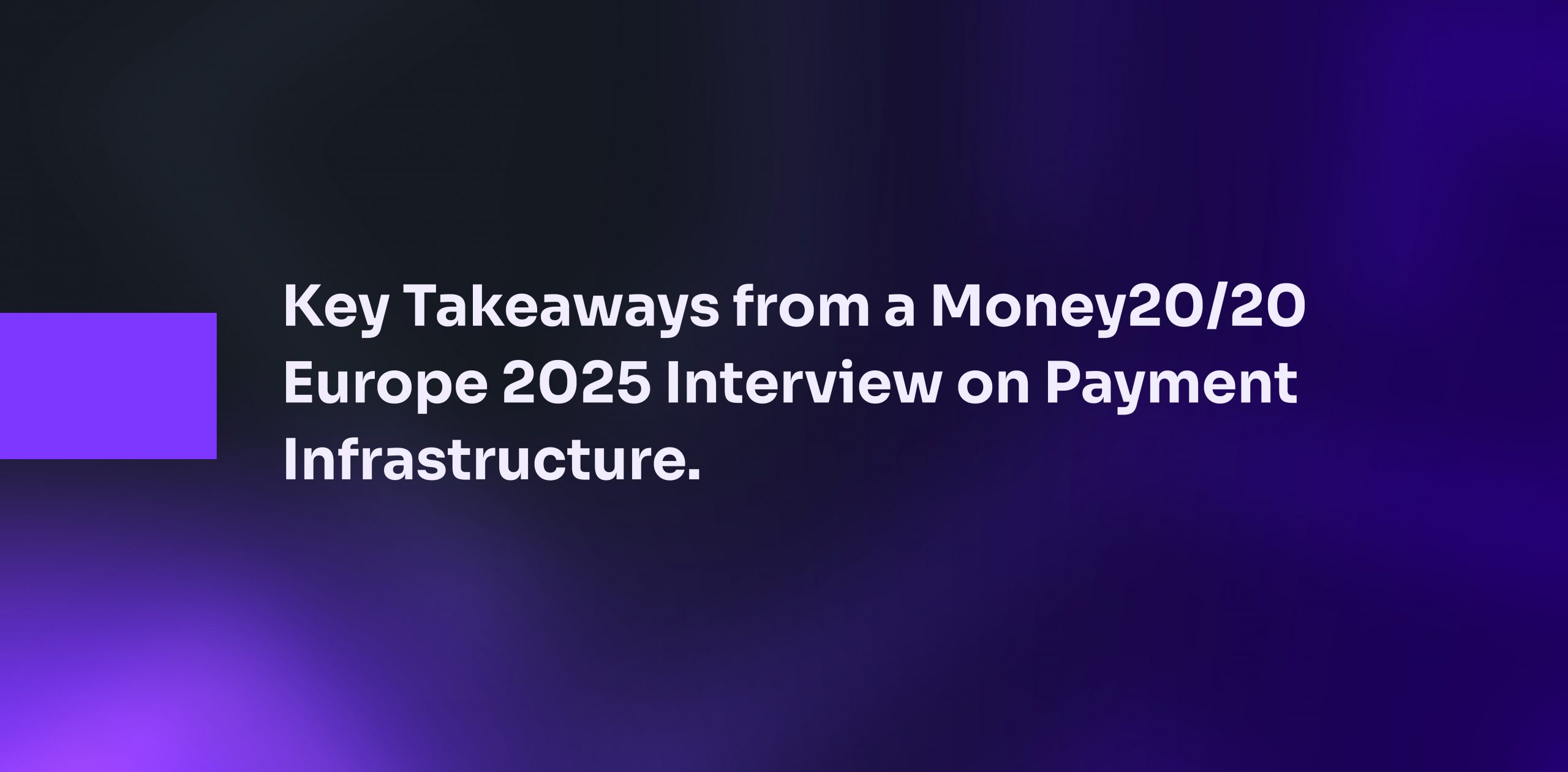Building a modern payment infrastructure is far more complex than it appears on the surface. In an insightful interview featured in The Paypers at Money20/20 Europe 2025, industry leaders unpacked the real-world challenges fintechs face when developing issuing and acquiring capabilities. The conversation highlighted how regulatory hurdles, technical missteps, and talent gaps often become hidden barriers to growth even for well-resourced companies.
Here are the core insights drawn from that discussion:
1. Card Scheme Membership Is a Major Barrier for Building Modern Payment Infrastructure
Achieving principal membership with global card schemes like Visa or Mastercard is one of the most demanding steps in launching an issuing or acquiring product. The certification process is extensive, highly technical, and can stretch timelines significantly even with the support of specialised advisors. Many new market entrants underestimate this, which often delays go-to-market plans and strains internal teams.
2. Overbuilding Technology Can Create More Problems Than It Solves
A recurring theme from the interview was the tendency of fintech founders to build proprietary systems from the ground up. While the intention is often to differentiate or control costs, the reality is that infrastructure-level payment technology is expensive, difficult to scale, and prone to delays.
Established platforms already provide robust, scalable solutions that meet industry standards. In most cases, the smarter approach is to focus internal development on customer experience and unique value propositions rather than rebuilding infrastructure that already exists.
3. Talent is as Critical For A Building Modern Payment Infrastructure
Beyond tech and compliance, success depends on assembling a well-rounded team. This includes product leads, compliance officers, integration specialists, and business strategists. Many companies struggle not because their product is weak, but because their internal capabilities are misaligned with the demands of operating regulated payment infrastructure.
The lesson is clear: hiring and retaining the right mix of talent is a strategic advantage in this space.
4. Real-World Examples Underscore the Risk of Misalignment
The conversation shared practical examples of promising fintechs that ran into preventable issues:
- A payment gateway provider with strong technology was unable to onboard clients due to challenges with regulatory approvals and compliance documentation.
- A seasoned FX-focused company serving SMEs for over two decades encountered serious setbacks when expanding into card issuing primarily due to limited internal IT capacity.
These stories underline a hard truth: technology alone is not enough. Navigating the regulatory landscape and building operational depth are equally essential.
5. Specialized Support Programs Can Make a Big Difference
Fortunately, many payment infrastructure providers now offer specialized programs to help fintechs accelerate market entry. These include:
- Discounted onboarding and implementation services
- Guidance on meeting card scheme requirements
- Pre-built integration templates
- Ongoing compliance and scalability support
Such programs provide much-needed structure and expertise, helping emerging fintechs focus on core product delivery while reducing risk and time-to-market.
Where Fincra Comes In
For fintechs navigating the complexity of issuing, acquiring, and cross-border collections, Fincra provides a ready-made payment infrastructure that saves you time, cost, and regulatory headaches. With direct integrations, card scheme-compliant processes, and developer-friendly APIs, Fincra enables you to launch faster without rebuilding the rails yourself. From virtual accounts in USD, EUR, and GBP to localized payout rails and embedded compliance, we help platforms move from idea to market with confidence.
Learn more at fincra.com
Final Reflection
The interview at Money20/20 Europe 2025 offers an important reminder: building payment infrastructure is not just a technical project. It’s a strategic undertaking that involves regulation, partnerships, and people. Fintechs that understand this early by investing in the right team, leveraging proven infrastructure, and seeking out expert support are best positioned to succeed.
For those building in this space or supporting others who are, the full interview is well worth the read:
👉 Understanding the Complexity of Payments with Decta – The Paypers



